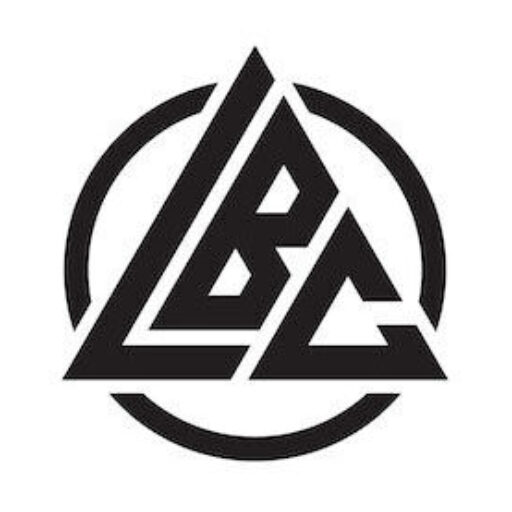Everyone is talking about crypto and NFTs and it’s made you curious. You want to invest, to take advantage of the best-performing assets that ever existed, but you don’t know where to begin.
We’ve got you covered. We have everything you need to know in one place.
What is Blockchain?
Blockchain is the name given to the underlying technology of cryptocurrencies. Bitcoin (BTC) exists on the Bitcoin blockchain. Ether (ETH) exists on the Ethereum blockchain.
A blockchain is a digital ledger – a book of records – that is impossible to be falsified, deleted, changed, or hacked. When you purchase some bitcoin, that transaction is recorded on the Bitcoin blockchain. That transaction is there forever, but it doesn’t record your name, it just records your wallet address the bitcoin was sent to. Any time you move crypto from one wallet to another, that transaction is recorded on the blockchain.
The blockchain is made of blocks and each block contains a certain number of transactions. When a block gets filled to its maximum number, another block is released in the chain and the process continues.

What is Decentralization?
Decentralization means that something is not controlled by one person, group, or entity. A bank is centralized. It controls your money in your account. If it wanted to, the bank could block your card, take away your funds, and shut you out of your account. When something is decentralized, it means that there are many people who have a say. It’s a bit like a democracy.
There isn’t one person or one group that controls a public blockchain. There are thousands of people all over the world running computers that validate the transactions. It is a trustless system, meaning you don’t have to trust one entity to be fair (like you would a bank).
That’s the beauty of blockchain technology and cryptocurrency. There must be a “consensus” across the network in order to approve transactions, make changes to the network and so on.
There are two ways that blocks are added to the blockchain.

Proof of Work
You’ve probably heard the term proof of work (PoW) and you’ve probably heard people saying how it’s bad for the environment. Well, it’s true. The Bitcoin blockchain operates via proof of work. There are miners all over the world who run sophisticated computers. These miners all use the same copy of the blockchain. Every copy is equal.
The mining computers gather up bitcoin transactions that happen on the Bitcoin blockchain and put them into blocks. Each miner wants their blocks, the ones that they put together, to be added to the blockchain. When their block is added, they receive some bitcoin in return.
The mining computers must solve mathematical problems in order to “win” the right to have their block added to the blockchain. This encourages lots of computational power, which can be seen as bad for the environment.
Proof of Stake
Proof of Stake (PoS) is friendlier to the environment. When a blockchain runs on a proof of stake algorithm (like Cardano) miners do not have to solve mathematical puzzles in order to have their block added to the chain.
Instead, miners “win” based on the number of coins they own. The more coins a miner has, the more likely his block will be added to the chain. You might be thinking “what if someone holds all the coins?” Well, first of all, that would be extremely difficult to do when millions of people own crypto.
Acquiring a 51% stake of one particular coin would be almost impossible. Secondly, there would be no incentive to attack a blockchain where you own the majority stake because the price would plummet.

Why are there so many cryptocurrencies?
There are thousands of cryptocurrencies and more are being released every day. Anyone can create their own cryptocurrency, but it’s not going to have any value unless you can either hype it up so that everyone buys it or unless you have a solid use case for it.
Bitcoin was the first cryptocurrency. It was created by an anonymous person(s) to be a peer-to-peer form of digital currency. While you can absolutely pay for things with bitcoin, people are starting to see it as more of a store of value rather than a currency.
Let’s take Ethererum as an example. Ether (ETH) is the cryptocurrency that powers the Ethereum blockchain. The Ethereum blockchain allows people to create and execute smart contracts. That is Ethereum’s use case.

Lots of cryptocurrencies also power blockchains that can run smart contracts. Some cryptocurrencies have other use cases such as decentralized online streaming (like THETA). Sometimes a cryptocurrency’s purpose is simply to enable fast and cheap monetary transactions (like Stellar or XRP). Sometimes a cryptocurrency is created as a joke and has no use case (like Dogecoin). Joke coins like DOGE are often hyped up and then eventually fizzle and die.
When investing in crypto, it’s important to look into its use case to see if you believe it has value. Visit our cryptocurrencies page to find out about the most popular cryptocurrencies available today, and see why some of them might be worth investing in.
*This website is full of affiliate links. Should you make a purchase or sign up to an exchange using the links on Lazyboycrypto, we may receive a small commission. Thank you in advance! It helps to keep the site running and available to everyone who would like to learn about crypto.
Absolutely nothing published on this website should be considered financial advice. We are too lazy to be financial advisors. This website is for educational purposes only. Invest at your own risk.



 Bitcoin
Bitcoin  Ethereum
Ethereum  Tether
Tether  Solana
Solana  USDC
USDC  XRP
XRP  Lido Staked Ether
Lido Staked Ether  Dogecoin
Dogecoin  Toncoin
Toncoin  Cardano
Cardano  Shiba Inu
Shiba Inu  Avalanche
Avalanche  TRON
TRON  Polkadot
Polkadot  Wrapped Bitcoin
Wrapped Bitcoin  Bitcoin Cash
Bitcoin Cash  Chainlink
Chainlink  Polygon
Polygon  NEAR Protocol
NEAR Protocol  Internet Computer
Internet Computer  Litecoin
Litecoin  LEO Token
LEO Token  Uniswap
Uniswap  Dai
Dai  First Digital USD
First Digital USD  Aptos
Aptos  Ethereum Classic
Ethereum Classic  Hedera
Hedera  Cosmos Hub
Cosmos Hub  Cronos
Cronos  Mantle
Mantle  Pepe
Pepe  Stellar
Stellar  Filecoin
Filecoin  Immutable
Immutable  Render
Render  Stacks
Stacks  XT.com
XT.com  OKB
OKB  Renzo Restaked ETH
Renzo Restaked ETH  Optimism
Optimism  Arbitrum
Arbitrum  dogwifhat
dogwifhat  Sui
Sui  Bittensor
Bittensor  Wrapped eETH
Wrapped eETH  Maker
Maker